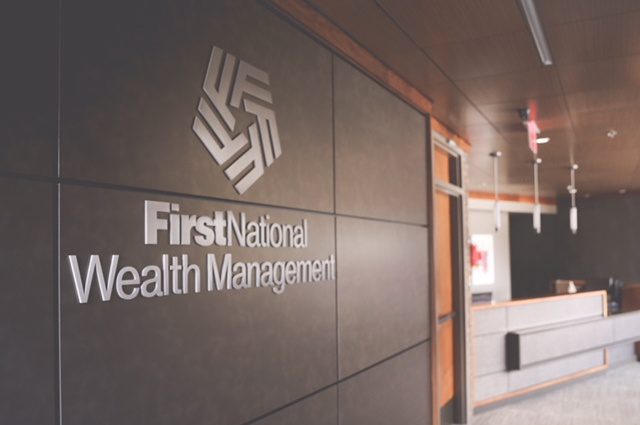Age meets investing: Follow these financial habits through the decades
June 16, 2020
This paid piece is sponsored by The First National Bank in Sioux Falls.
By Adam Cox, chief wealth management officer
What we’ve gone through over the course of the past few months has left us all wondering, what’s next?
As COVID-19 made its way around the world, grave public health and economic concerns preceded it. In the initial days and weeks of the outbreak-induced havoc, the S&P 500 reported its steepest drop since 1987. Such dips in the stock market don’t feel good, even for people who have many years before they begin pulling from their investments.
Now that investors of all age groups have some very recent experience with market volatility, we thought it might be helpful to offer advice to make sure you’re making the most of your investing power during this time. Whether you’re just starting out in your investment journey or you’re nearing the age of retirement, our team can help.
Read through these tips, and then listen to the newest episode of our podcast, Common Cents on the Prairie, where we break down just how much you need to save each month by decade to become a millionaire by the time you’re 65. When you’re ready to make it happen, we can help.
In your 20s
For those who’ve just started their career or investing, your 20s should be about building good financial habits. You should be setting a solid foundation of savings and learning to automate financial behaviors. For example, save more than the minimum amount toward your retirement account or pay more on your mortgage and/or your student loan debt. You also should have enough cash saved to insulate you from unexpected bumps in the road.
While it’s hard to think about retiring at this age, it’s essential that young earners start saving early for retirement. Why? Two words: compound interest. Here are a few ways to ensure you’re maximizing your retirement savings:
- Use a Roth 401(k) or Roth IRA to take advantage of tax-free growth.
- Invest at least enough in your company retirement plan to get the full match from your employer.
- Use the automatic increase feature in your retirement plan so that you increase your contributions each time you get a pay raise.
In your 30s
The 30s can be a time of big changes. You may be growing your family, moving into a bigger home and developing your career. With all these changes, life can get hectic, and it can be easy to forget about your future self. However, time is still on your side, and the dollars you save in your 30s have many years to grow. While it may seem like money is especially tight in this decade, don’t waste this opportunity to invest in yourself.
That mentality should drive your approach to investing during your 30s. Here are a few good financial habits to establish during this time:
- Push your retirement contributions up to 15 percent of your gross pay.
- Have three to six months of living expenses saved in a checking or savings account for unexpected expenses.
- If you have student loans, they should be paid off before you enter your 40s. Dragging that debt into your 40s can put a huge damper on your investing.
- Lastly, you should have a basic estate plan and term life insurance in place.
In your 40s
With half of your working life almost behind you, there is light at the end of the tunnel. If you haven’t gotten serious about your investments, there’s still time, but you’ll need to kick it in gear to be in a good position by the time you reach retirement. A few things you should do during your 40s include:
- Getting rid of all your debt by the time you turn 50, including your mortgage.
- If you have kids, their college savings plans should be fully loaded.
- Your estate plan and beneficiary designations should be up-to-date.
- Have some healthy cash reserves set aside.
In your 50s
With retirement just on the horizon, you likely feel very prepared or not prepared at all. Either way, you should be able to check these things off your list by the time you close out your 50s:
- Get rid of any and all remaining debt.
- Increase your liquid savings to at least one year of living expenses.
- Make sure your asset allocation is appropriate for this stage in life, working with an adviser who can help stress-test your portfolio for retirement.
If you’re ready to get started, no matter your age, contact us. Our team of professional advisers has the tools and expertise needed to create the right plan for you so you can feel secure, regardless of what stage of life you’re in.
Any comments, insights or strategies discussed in this piece are intended to be general in nature and, therefore, may not be suitable for you and your situation, whatever that may be. Before acting on anything written here, please consult with your attorney, CPA, and/or your financial adviser.









